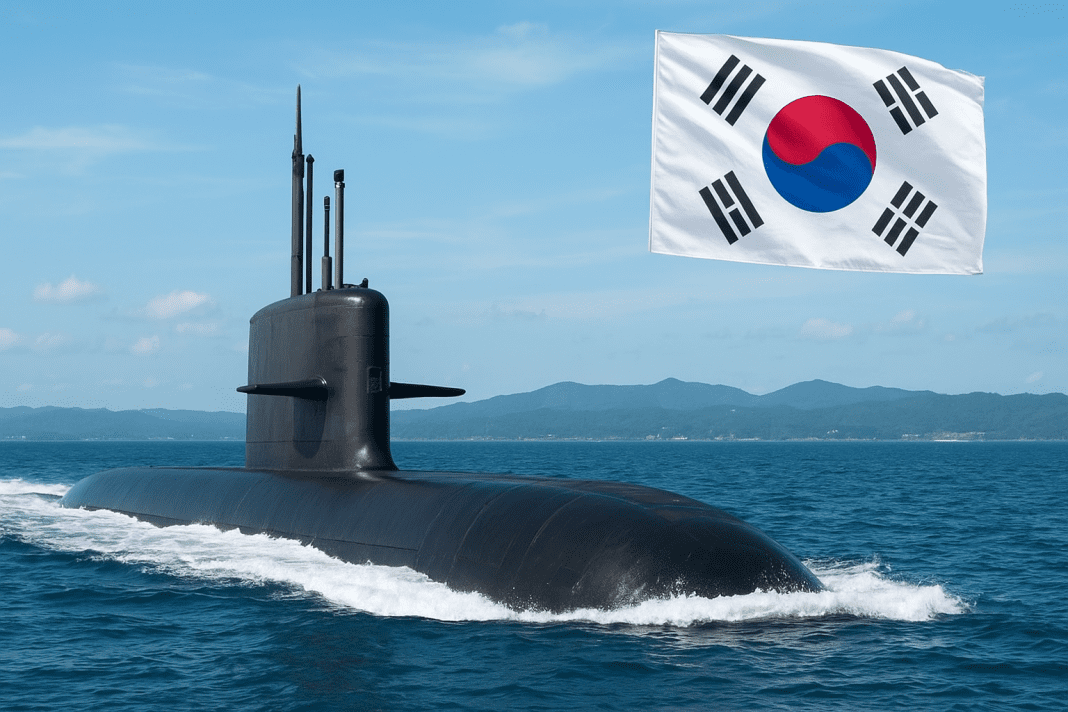China has expressed strong concerns over Seoul’s plan to build nuclear-powered attack submarines in partnership with the United States. A senior Chinese envoy emphasized that Seoul should act cautiously, warning that the move could have far-reaching consequences for regional stability.
China Voices Strong Concerns Over South Korea-US Submarine Plans in Seoul
The envoy said that cooperation on nuclear submarines is not just a commercial or military matter. “It involves international rules on nuclear safety and global efforts to prevent the spread of nuclear weapons,” the diplomat stated during a press briefing in Seoul.
China has communicated its concerns through diplomatic channels, stressing that Seoul and Washington should carefully consider how their joint project might impact the broader region. The envoy highlighted that any change in the strategic goals of the South Korea-US alliance could also influence China’s approach toward the alliance.
A historic shift beneath the waves — U.S. empowers South Korea with nuclear submarine might
The diplomat further warned that while historical ties form the basis of the alliance, any significant shift in its objectives could alter regional security dynamics. He urged Seoul to weigh all factors before moving forward with the nuclear submarine program.
Seoul and Washington’s Agreement on Nuclear Submarines
South Korea and the United States recently agreed to work together to support Seoul in building nuclear-powered attack submarines. According to a joint statement issued by both countries, the US will provide the necessary approval and nuclear fuel required for the project.
Seoul has clarified that the submarines will be conventionally armed and will not carry nuclear weapons. Officials emphasized that the program fully complies with the Nuclear Non-Proliferation Treaty, the international agreement designed to prevent the spread of nuclear weapons.
South Korea’s ex-first lady Kim Keon Hee goes on trial for corruption and election interference
The submarine initiative is a major part of Seoul’s plan to strengthen its national defense capabilities. During a recent summit, South Korean leaders requested US approval to develop these submarines as a component of their independent defense strategy. Seoul maintains that the program is defensive in nature and essential for safeguarding its maritime security in the face of regional threats.
China Issues Warnings on Broader Security Concerns
The Chinese envoy also raised broader security concerns related to the modernization of the South Korea-US alliance. He warned that if the alliance expands its strategic objectives beyond the Korean Peninsula, China may reconsider its posture in the region.
Specifically, China expressed concerns over Taiwan. The envoy emphasized that any involvement of Seoul and US forces in the Taiwan Strait could raise serious alarms in Beijing. “We hope the alliance absolutely will not play with fire on the so-called Taiwan issue,” the diplomat said, reinforcing China’s position that Taiwan is part of China.
The envoy also criticized US efforts to challenge China’s shipbuilding industry. Initiatives aimed at boosting US naval capabilities while limiting China’s growth in this sector were described as measures used against China rather than direct actions against Seoul.
Additionally, China defended its sanctions on subsidiaries of South Korea’s Hanwha Ocean. The diplomat explained that these measures are part of broader counteractions against US policies and are not targeted at Seoul. However, he stressed that Seoul should be mindful of the wider implications, as China cannot ignore actions that it perceives as harmful to its national interests.
Overall, the Chinese envoy called on Seoul to exercise prudence and carefully consider both the regional and international consequences of moving forward with the nuclear submarine project. The repeated warnings signal Beijing’s close monitoring of South Korea-US military cooperation and underline the delicate balance in Northeast Asian security dynamics.
